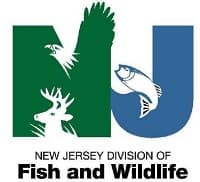New Jersey DFW Asks Public to Be on Alert for EHD in Deer

The NJDEP Division of Fish and Wildlife is asking those who are out in the fields and woods of New Jersey at this time of year to be alert for deer that may be affected by Epizootic Hemorrhagic Disease (EHD) and to report any suspected cases to the Division.
EHD is a common viral disease in deer that is contracted from the bite of a species of midge known as Culiocoides sonorensis. New Jersey has experienced seven outbreaks of EHD since 1955. Outbreaks typically begin in August; symptoms of EHD in deer may include difficulty standing, drooling, and/or emitting foam from the mouth or nose. Deer with any of those symptoms, as well as dead deer with no apparent wounds observed in or near water, should be reported to any one of the following numbers:
Office of Fish and Wildlife Health and Forensics:
Bill Stansley, 908-236-2118
Bureau of Wildlife Management:
Northern Region – Carole Stanko or Dan Roberts, 908-735-7040
Central Region – Jodi Powers, 609-259-6965
Southern Region – Joe Leskie, 609-748-2043
EHD is not a public health issue and is not a cause for concern about human health. It cannot be transmitted to people, and humans are not at risk by handling infected deer, being bitten by infected midges, or eating infected deer meat, though the Division of Fish and Wildlife strongly advises against consuming meat from any game animal that appears ill.
The virus can infect livestock but only rarely causes a mild disease in cattle. People suspecting this disease in cattle should test their animals and can seek information from the State Veterinarian’s Office at 609-292-3965. Dogs and cats are not affected by EHD virus.
For more information:
Epizootic Hemorrhagic Disease (EHD) in Deer in New Jersey (Office of Fish and Wildlife Health and Forensics)
Southeastern Cooperative Wildlife Disease Study: http://vet.uga.edu/population_health_files/HD-brochure-web.pdf.

